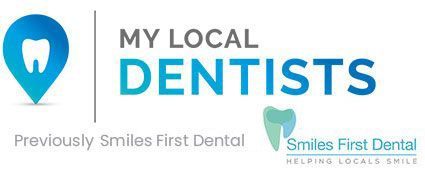A chipped tooth is a common dental issue. Whether you experience a chipped tooth from an accident or from eating hard foods, it can cause discomfort and embarrassment. Fortunately, there are a few solutions that can help restore your smile and confidence. This post provides a comprehensive guide on how to fix a chipped tooth. Let’s get started.
What Are the Causes of a Chipped Tooth?
1. Eating Hard Foods
Biting down on hard foods like candy, nuts, and ice cubes can cause chips and fractures in your teeth. To avoid this, try to chew only soft foods that won’t put too much strain on your teeth. Additionally, it is important to brush after eating hard foods as they can wear away enamel over time.
2. Teeth Grinding
Teeth grinding (bruxism) is when you clench or grind your teeth throughout the day or while you sleep. This can lead to weakened enamel and, eventually, chips and fractures in the teeth due to excessive force being placed on them. If you think you may have bruxism, talk to your dentist about treatment options, such as mouth guards and stress reduction techniques.
3. Tooth Decay
Tooth decay (cavities) weakens the overall structure of the tooth, which makes it more prone to chipping or fracturing if something hits it wrong or with enough force. It’s important to get cavities treated as soon as possible before they lead to further damage like cracked teeth or, worse yet, an infection in the root canal system!
4. Accidents/Trauma
Accidents, such as falls or physical trauma from sports activities, can result in a chip or fracture in one’s tooth if done with enough force – especially if the person does not have any protective gear, such as a mouth guard! It is always best practice to wear protective gear when participating in contact sports or other physical activities where there is a risk of facial trauma occurring.
5. Impacted Wisdom Teeth
Impacted wisdom teeth are those that are blocked by other teeth and unable to emerge properly into their correct position within the mouth cavity; this can cause pressure on surrounding molars leading them to chip or fracture with time due to constant pressure being exerted on them from all sides. If you suspect impacted wisdom teeth may be causing damage, speak with your dentist about removal options for optimal oral health!
6. Age-Related Wear and Tear
Finally, age-related wear and tear can also cause chips in your teeth due to thinning enamel over time. This isn’t something that can necessarily be prevented, but it is something that should be monitored closely so that any chips are addressed quickly before they become larger issues down the line.
7. Old dental work
Even the most well-crafted restorations and fillings that are designed to protect your teeth can still cause a chipped or broken tooth. Without regular checkups, these weakened spots in the mouth will be left unchecked, potentially leading to more expensive dental issues down the line. Don’t wait until it’s too late – get yourself scheduled for an appointment with your dentist so they can identify any areas of concern before it’s too late!
What Should You Do if You Have Chipped or Broken Teeth?
Stay Calm
The initial step is to assess the situation and stay calm. Try not to panic and take a few deep breaths. It will help keep your mind clear so you can focus on what needs to be done next. If there is any pain associated with the chip, rinse your mouth out with warm water and take an over-the-counter pain reliever such as ibuprofen or acetaminophen.
See Your Dentist ASAP
Chipped teeth should be addressed as soon as possible by a dentist. They will evaluate the damage and recommend the best course of action for repairing your chipped tooth. In some cases, depending on how extensive the damage is, they may suggest filing down the edges of the chip or bonding it with composite material that matches your natural enamel colour. Depending on the severity of the chip, dental crowns may also be recommended in order to restore strength, structure and appearance to a damaged tooth.
Make Sure To Take Care Of Yourself At Home
In between visits to your dentist, there are some things that you can do at home in order to minimise further damage and promote the healing of your chipped tooth. Avoid eating or drinking anything too hot or cold until you get to see your dentist, as temperature extremes can cause additional discomfort. Also, avoid crunchy foods like nuts or popcorn that could further aggravate your chipped tooth. Make sure that you brush twice daily with soft bristles and floss once per day in order to prevent bacteria from accumulating around your chipped tooth, which could lead to decay and further damage.
How to Fix a Chipped Tooth?
Dental Bonding
Dental bonding is one of the most popular treatments for fixing a minor chip in the tooth. This procedure involves applying a composite resin material onto the surface of the affected area. The resin is shaped and polished to match your existing teeth, making it look as natural as possible. It’s also more affordable than other treatments, such as dental veneers. However, dental bonding typically only lasts around three to five years before needing to be replaced.
Veneers
Veneers are shells made out of porcelain that cover the front surface of your teeth. This cosmetic dentistry procedure is typically used to fix more serious chips or cracks in the teeth, as well as discolouration or misalignment issues. Veneers offer an improved aesthetic appearance and are stain-resistant compared to dental bonding materials. However, they tend to be significantly more expensive than other treatments and require long-term maintenance like brushing and flossing regularly for them to last up to 10 years or longer.
Crowns
If you have a big chip in your tooth that has caused significant damage, then you may want to consider getting a crown instead of bonding or veneers. A crown completely covers your entire tooth, protecting it from further damage while also giving it back its original shape and size. Depending on your budget, there are various types of crowns available, including porcelain, metal alloy, gold alloy, ceramic-fused-to-metal crowns, etc., each offering different benefits depending on their composition and cost range.
Fillings
A filling is another option if you find yourself experiencing pain due to a chipped tooth caused by decay or cavities within the damaged area itself rather than just on its surface alone. Fillings involve removing any decayed tissue inside the affected area, followed by filling in the hole with material such as silver amalgam or composite resin, depending on what works best for you and your dentist’s recommendation for best results. Fillings can last anywhere from 7–10 years with proper care but may need replacement sooner if they become loose or cracked over time due to wear-and-tear or trauma experienced in accidents/sports activities etc.
Root Canal Therapy (RCT)
Finally, if all else fails, then root canal treatment might be necessary in cases where severe damage has been done to both enamel and dentin layers of your teeth due to decay/cavities/trauma etc. RCT involves removing any infected pulp tissue inside the damaged area along with any debris that might still be present before sealing off all pathways leading into this area via capping off damaged nerves and vessels with gutta-percha/resin fillings/metallic posts etc. RCT not only helps restore structural integrity but also relieves pain associated with infections inside these areas too when performed properly by trained professionals who are experts in this field of dentistry!
Tooth Extractions
Tooth extractions may be necessary if the chip has caused severe damage or decay that cannot be repaired through other methods like dental bonding or veneers. This procedure involves removing the damaged portion of the tooth so that it does not cause any further problems down the line, such as infections or abscesses. Your dentist will likely recommend replacing this missing tooth with a dental implant or bridge afterwards so that you still have full use of your mouth without compromising its aesthetic appeal!
Is Leaving a Chipped Tooth Unchecked A Prudent Decision?
Leaving a chipped or cracked tooth untreated can be risky to your oral health and, in more serious cases, your overall health. A missing or damaged enamel layer of the tooth exposes nerves, gum tissue and bacteria to the outside environment. This vulnerability can cause teeth sensitivity and discomfort, decay under the filling or crown and even detrimental infections. As such, it is best to take advice from your dentist as soon as possible rather than leave a broken or chipped tooth unchecked. Whatever treatment your dentist recommends is likely to benefit both your current well-being in addition to future dental health.
Rejuvenate Your Smile With a Visit to My Local Dentists Northmead
If you’re looking for a reliable, experienced and reputable dentist to help with your chipped tooth, head straight over to My Local Dentists Northmead, where you’ll be in capable hands. Our experienced dentists at My Local Dentists Northmead are dedicated to ensuring the best dental care for their patients and strive to maintain lasting relationships built on trust. With an extensive range of procedures at hand, no dental job is too small or complex for us – your chipped or broken tooth will be in good hands! Plus, our state-of-the-art technology allows for as little discomfort and stress as possible when undergoing treatment. Call us now at (02) 9630 9996 to schedule your consultation.
Note: Any surgical or invasive procedure carries risks. Before proceeding, you should seek a second opinion from an appropriately qualified health practitioner.
References
Repairing a Chipped or Broken Tooth
https://www.webmd.com/oral-health/guide/repairing-a-chipped-or-broken-tooth
Fractured Tooth (Cracked Tooth)
https://my.clevelandclinic.org/health/diseases/21628-fractured-tooth-cracked-tooth

